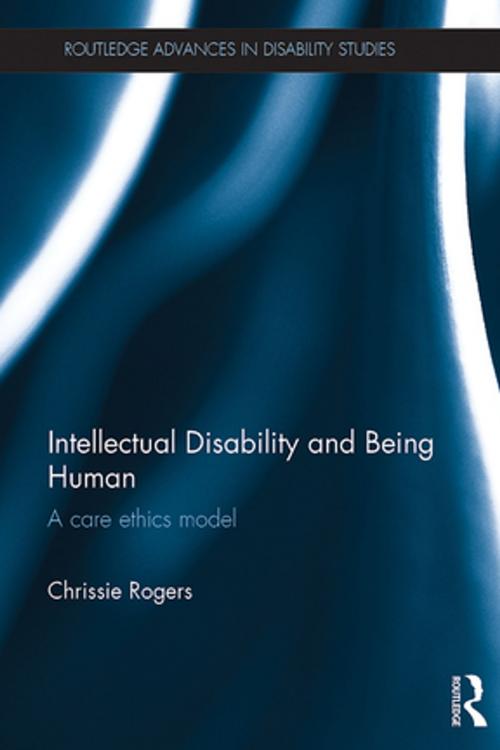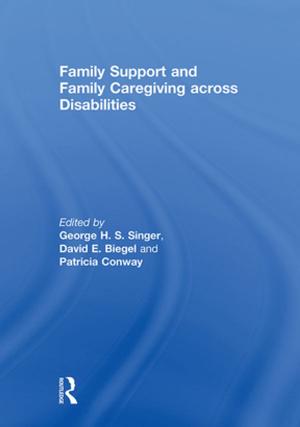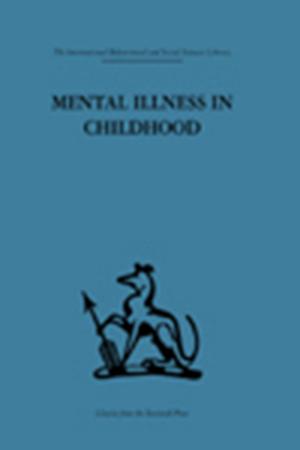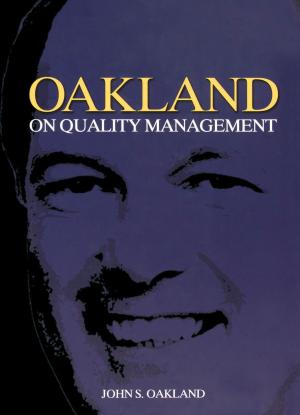Intellectual Disability and Being Human
A Care Ethics Model
Nonfiction, Health & Well Being, Medical, Patient Care, Health Care Delivery, Social & Cultural Studies, Social Science, Disability| Author: | Chrissie Rogers | ISBN: | 9781317271857 |
| Publisher: | Taylor and Francis | Publication: | February 26, 2016 |
| Imprint: | Routledge | Language: | English |
| Author: | Chrissie Rogers |
| ISBN: | 9781317271857 |
| Publisher: | Taylor and Francis |
| Publication: | February 26, 2016 |
| Imprint: | Routledge |
| Language: | English |
Intellectual disability is often overlooked within mainstream disability studies, and theories developed about disability and physical impairment may not always be appropriate when thinking about intellectual (or learning) disability.
This pioneering book, in considering intellectually disabled people's lives, sets out a care ethics model of disability that outlines the emotional caring sphere, where love and care are psycho-socially questioned, the practical caring sphere, where day-to-day care is carried out, and the socio-political caring sphere, where social intolerance and aversion to difficult differences are addressed. It does so by discussing issue-based everyday life, such as family, relationships, media representations and education, in an evocative and creative manner. This book draws from an understanding of how intellectual disability is represented in all forms of media, a feminist ethics of care, and capabilities, as well as other theories, to provide a critique and alternative to the social model of disability as well as illuminate care-less spaces that inhabit all the caring spheres. The first two chapters of the book provide an overview of intellectual disability, the debates surrounding disability, and outline the model. Having begun to develop an innovative theoretical framework for understanding intellectual disability and being human, the book then moves onto empirical and narrative driven issue-based chapters. The following chapters build on the emergent framework and discuss the application of particular theories in three different substantive areas: education, mothering and sexual politics. The concluding remarks draw together the common themes across the applied chapters and link them to the overarching theoretical framework.
An important read for all those studying and researching intellectual or learning disability, this book will be an essential resource in sociology, philosophy, criminology (law), social work, education and nursing in particular.
Intellectual disability is often overlooked within mainstream disability studies, and theories developed about disability and physical impairment may not always be appropriate when thinking about intellectual (or learning) disability.
This pioneering book, in considering intellectually disabled people's lives, sets out a care ethics model of disability that outlines the emotional caring sphere, where love and care are psycho-socially questioned, the practical caring sphere, where day-to-day care is carried out, and the socio-political caring sphere, where social intolerance and aversion to difficult differences are addressed. It does so by discussing issue-based everyday life, such as family, relationships, media representations and education, in an evocative and creative manner. This book draws from an understanding of how intellectual disability is represented in all forms of media, a feminist ethics of care, and capabilities, as well as other theories, to provide a critique and alternative to the social model of disability as well as illuminate care-less spaces that inhabit all the caring spheres. The first two chapters of the book provide an overview of intellectual disability, the debates surrounding disability, and outline the model. Having begun to develop an innovative theoretical framework for understanding intellectual disability and being human, the book then moves onto empirical and narrative driven issue-based chapters. The following chapters build on the emergent framework and discuss the application of particular theories in three different substantive areas: education, mothering and sexual politics. The concluding remarks draw together the common themes across the applied chapters and link them to the overarching theoretical framework.
An important read for all those studying and researching intellectual or learning disability, this book will be an essential resource in sociology, philosophy, criminology (law), social work, education and nursing in particular.















